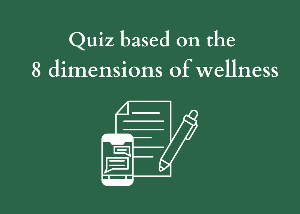

"A healthy outside starts with the inside" ~ Robert Urich
Important announcement regarding the future of Holistipedia
For years, Holistipedia has been a passion project, a labor of love dedicated to providing a comprehensive and accessible resource for holistic health and wellness information. We've poured countless hours, significant personal resources, and immense dedication into building and maintaining this platform, believing deeply in its value to the community.
However, the reality is that Holistipedia has reached a critical juncture. The costs associated with its operation – including server maintenance, software licenses, content creation, and technical support – have become unsustainable for us to bear independently. Despite our best efforts and unwavering commitment, we can no longer keep Holistipedia alive in its current form without external financial support.
Our vision for Holistipedia has always been to see it thrive as a public good, an unbiased and reliable source of information free from commercial influence. To achieve this, we believe the ideal path forward is for Holistipedia to transition into a non-profit organization. This would allow us to pursue grants, receive donations, and operate solely for the benefit of our users, ensuring the long-term sustainability and growth of the platform.
Therefore, we are actively seeking an investor or organization who shares our vision and is willing to invest in Holistipedia's future as a non-profit entity. Without such an investment, we unfortunately face the difficult decision of having to cease operations.
We understand this news may be disappointing, and it is certainly not a decision we have taken lightly. We are immensely grateful for your support, your engagement, and your trust in Holistipedia over the years. We truly hope that a solution can be found to keep this valuable resource alive and flourishing for years to come.
If you are an individual or organization who believes in the mission of Holistipedia and has the capacity to help us achieve this transition, please contact us at your earliest convenience to discuss how we can work together to secure Holistipedia's future as a non-profit.
Heather and Louise
Co-founders
Holistipedia - your wellness source
info@holistipedia.ca
www.holistipedia.ca
Help Save Holistipedia
Welcome
Holistipedia is your go-to source for everything wellness, built on the 8 dimensions of wellness: physical, mental, emotional, social, spiritual, environmental, financial, and occupational. Our platform serves as a comprehensive community hub offering wellness resources.

Why join?
As a community member - whether you know what you're looking for in your wellness journey or if you're not sure what you're looking for, we are here to guide you. We take the overwhelm from you so you can find the right credible holistic modality to help you.
Please indicate your first and last name to appear on your membership card. It will be sent to you by email.
Take our wellness quiz!
Want to find out what your wellness score is?
📝 Take our wellness quiz and get your name submitted for a draw!
👉 Link to quiz
The responses are totally anonymous so if you do take the quiz, come back to this post and put in the comments that you have completed it and your name will be submitted on our wheel of names random name.
Please share this post to your story or feed!
Holistipedia's wellness quiz is for everyone and anyone. It is based on the 8 dimensions of wellness. They are:
💖 Physical: nourishing a healthy body through exercise, nutrition, sleep.
💖 Mental: feeling balanced, connected to others and ready to meet life’s challenges.
💖 Emotional: being aware of, accepting and expressing our feelings, and understanding the feelings of others.
💖 Social: connecting and engaging with others and our communities in meaningful ways.
💖 Spiritual: searching for meaning and higher purpose in human existence.
💖 Environmental: fostering positive interrelationships between planetary health and human actions, choices and wellbeing.
💖 Financial: learning how to successfully manage financial expenses.
💖 Occupational: preparing for work in which we gain personal satisfaction and find enrichment in our life.
Whatever score you will end up with, you can always become a community member for free to help you find the modalities and resources that are for you.
Remember, this quiz is not a substitute for professional advice. It serves as a general assessment of your wellness in different areas. If you have concerns about any dimension of your well-being, seek guidance from appropriate professionals.
The 8 Dimensions of Wellness

Physical Wellness
Nourishing a healthy body through exercise, nutrition, sleep.
Physical wellness refers to the state of being in good physical health, which includes factors such as proper nutrition, regular exercise, adequate sleep, and avoiding risky behaviors such as smoking or excessive alcohol consumption.
To maintain physical wellness, it's important to engage in regular physical activity, such as 30 minutes of moderate-intensity exercise most days of the week. Eating a healthy and balanced diet, including plenty of fruits, vegetables, lean proteins, and whole grains, is also important for maintaining physical wellness. Getting enough rest and sleep, managing stress, and avoiding harmful substances such as tobacco and drugs are also key factors in achieving physical wellness.
By prioritizing physical wellness, individuals can improve their overall quality of life, reduce their risk of chronic disease, and increase their longevity.

Mental Wellness
Feeling balanced, connected to others and ready to meet life’s challenges.
Mental wellness refers to a state of emotional and psychological well-being, where an individual is able to cope with the normal stresses of life, work productively, and contribute to their community. It involves a sense of purpose, fulfillment, and satisfaction in life, as well as the ability to manage one's thoughts, feelings, and behaviors in a healthy way.
Some of the key factors that contribute to mental wellness include good physical health, healthy relationships, a positive self-image, effective coping skills, and a sense of purpose or meaning in life. Strategies for promoting mental wellness may include practicing mindfulness, engaging in regular exercise, getting adequate sleep, seeking professional help when needed, and building a strong support network of family and friends.

Emotional Wellness
Being aware of, accepting and expressing our feelings, and understanding the feelings of others.
Emotional wellness refers to the ability to manage and express one's emotions in a healthy and positive way. It involves understanding and accepting one's own feelings, as well as being able to empathize with and respond to the emotions of others.
Some key aspects of emotional wellness include:
- Self-awareness: This involves recognizing and understanding your own emotions and how they impact your thoughts, behaviors, and relationships.
- Self-regulation: This involves managing your emotions in a healthy and appropriate way, rather than letting them control you.
- Empathy: This involves being able to understand and relate to the emotions of others, and responding in a caring and supportive way.
- Social skills: This involves being able to communicate effectively, build positive relationships, and work well with others.
- Resilience: This involves being able to bounce back from setbacks and challenges, and maintain a positive outlook even in difficult circumstances.
Maintaining emotional wellness is important for overall health and well-being. It can help reduce stress, improve relationships, and enhance overall quality of life. Some strategies for promoting emotional wellness include practicing self-care, seeking support from others, practicing mindfulness, and engaging in activities that bring joy and fulfillment.

Social Wellness
Connecting and engaging with others and our communities in meaningful ways.
Social wellness refers to the aspect of overall health and well-being that involves developing and maintaining positive and meaningful relationships with other people. It includes the ability to interact effectively with others, build strong and supportive relationships, and create a sense of belonging and connectedness within communities.
A person who is socially well is able to communicate clearly, listen actively, express emotions appropriately, and establish and maintain healthy boundaries. They are able to form and maintain close relationships with family, friends, colleagues, and others, and are able to participate in social activities that bring joy and fulfillment.
Social wellness is essential for a balanced and fulfilling life, as it helps to reduce stress, improve mood, and enhance overall mental and physical health. It also plays a critical role in building resilience and coping skills, particularly during times of stress, change, or uncertainty.

Spiritual Wellness
Searching for meaning and higher purpose in human existence.
Spiritual wellness is the aspect of overall well-being that pertains to a person's inner life and relationship with a higher power or sense of purpose. It involves the search for meaning and purpose in life, a sense of connection to something greater than oneself, and a belief in principles such as compassion, forgiveness, and gratitude.
There is no one definition of spirituality that fits everyone, as it can be experienced in different ways by different people. For some, spirituality may be rooted in a specific religion or faith, while for others it may be more abstract or individualized.
To cultivate spiritual wellness, individuals may engage in activities such as meditation, prayer, or contemplation, or participate in practices such as yoga, mindfulness, or self-reflection. They may also seek out opportunities for personal growth, such as volunteering or engaging in creative pursuits.
Ultimately, spiritual wellness is a deeply personal aspect of well-being that can bring a sense of purpose, fulfillment, and inner peace to one's life.

Environmental Wellness
Fostering positive interrelationships between planetary health and human actions, choices and wellbeing.
Environmental wellness is one of the dimensions of wellness that focuses on the relationship between individuals and their environment. It refers to the awareness and appreciation of the natural environment, and the responsibility individuals have to protect and preserve it.
Environmental wellness involves making choices and taking actions that promote sustainability and reduce environmental harm. This can include reducing energy consumption, conserving water, recycling, using environmentally-friendly products, and supporting eco-friendly practices.
Individuals who prioritize environmental wellness may also engage in activities such as hiking, gardening, and spending time in nature, as a way to connect with the natural world and promote their own well-being. Overall, environmental wellness recognizes the interconnectedness between individuals, their environment, and the larger global community.

Financial Wellness
Learning how to successfully manage financial expenses.
Financial wellness refers to the state of one's overall financial health and well-being. It involves having a sense of control over one's finances, being able to meet financial obligations, and having the ability to make informed decisions about money.
Financial wellness can be achieved by developing good financial habits, such as creating and sticking to a budget, saving money regularly, investing wisely, and managing debt responsibly. It also involves having a good understanding of financial products and services, such as insurance, investments, and retirement planning.
In addition to these personal habits, financial wellness can also be influenced by external factors such as economic conditions, job stability, and access to financial resources and education.
Overall, achieving financial wellness can lead to greater financial stability, less stress and anxiety, and the ability to achieve long-term financial goals such as retirement or buying a home.

Occupational Wellnes
Preparing for work in which we gain personal satisfaction and find enrichment in our life.
Occupational wellness refers to the balance and satisfaction one experiences in their work or career. It involves finding purpose and fulfillment in one's occupation, feeling valued and appreciated by colleagues and superiors, having a positive work-life balance, and being able to manage workplace stress and challenges effectively.
To achieve occupational wellness, individuals need to identify their strengths, interests, and values and find a job that aligns with them.
They also need to continually develop their skills and knowledge, set achievable goals, and maintain a healthy work-life balance. It's also essential to establish positive relationships with colleagues, maintain healthy work boundaries, and seek support when needed.
Having good occupational wellness can lead to a sense of accomplishment, financial stability, and personal growth, which can positively impact other areas of life, such as physical and emotional wellbeing.
HOLISTIPEDIA © 2022-2025











